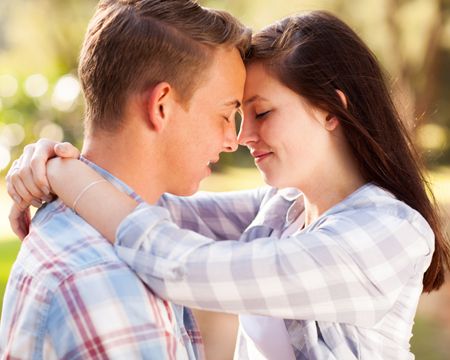
2 | 7656 views
The first romantic relationship is undoubtedly one of life’s most intense experiences. It usually unfolds during youth, an “age of possibilities” and of many first discoveries—often hitting like an emotional tsunami. This first love almost always leaves lifelong marks and eventually becomes an important point of reference. What makes it so special? And why does it leave such indelible impressions? As people grow older, many even go searching for it again.
Discovering Love: Exceptionally Intense Feelings
Adolescence is, for many, the time of their first deep experiences outside the protection of the family. When previously unknown romantic feelings arise—racing heart, sweaty palms, butterflies in the stomach, blushing cheeks—it feels like a force of nature. What makes these feelings so powerful is their novelty, combined with the spontaneity and impulsiveness of adolescence. Usually, this first relationship is not just platonic, but often coincides with sexual awakening—a particularly intense and formative experience.
At this stage, many still have a very romantic view of love and couplehood, seeing the relationship almost as predestined rather than the result of continuous development and joint effort, as is often recognized later in life. “First love is characterized by great innocence and enthusiasm—a time when we believe anything is possible,” explains German couples psychologist Wolfgang Krüger.
A Story That Leaves Its Mark
A study by Harvard University on human cognitive development found that emotional memory is most active between the ages of 15 and 26. Everything we experience during those years—both good and bad—shapes us deeply and lastingly. No wonder, then, that we tend to remember our first romantic experience for the rest of our lives!
Our first love lays many foundations: It is a school for all the emotional challenges of a relationship—patience, forbearance, setting boundaries, dealing with jealousy or hurt. Through this experience, we develop emotional patterns that influence future partnerships: What do we accept, and what not? How do we want to be treated? Who are we as partners?
There’s more: At this stage, the personality is changing and forming. Our first love provides orientation, self-affirmation, and is also an opportunity to define boundaries and get to know our own needs—a central aspect of identity formation, as many psychologists confirm.
French psychoanalyst Jean-Michel Hirt puts it this way: “Our first love shapes our emotional compass. It is deeply inscribed into our memory and remains our point of reference for all future relationships.”
Getting Back in Touch With a First Love—A Good Idea?
It’s striking how often people think of their first love even years later. According to a British study conducted for the film “The Best of Me,” six out of ten adults regularly remember their first partner, and four out of ten even still have feelings for that person.
As people age, many seek them out. Today, this is easier than ever thanks to social networks and online searches. Especially in times of upheaval, when life feels uncertain or reality disappoints, we yearn for that carefree period—hoping to relive it. This longing is often a mix of nostalgia, yearning for those old feelings, and sometimes fear of new relationships. This is especially true when we sense that something with that person felt “unfinished.”
Couples therapist Catherine Serrurier explains: “Over the years, especially women feel a growing urge to rekindle the magic of their first love. After years in multiple roles—as mother, wife, working woman—grows the longing to return to a lighter, dreamier time. This is not so much an escape, but rather a desire for emotional affirmation and a moment’s distance from an often demanding reality.”
However, real-life accounts show that actually meeting a first love again is often sobering. Don’t we idealize our memories? Psychotherapist Eva Jaeggi warns: “The past often appears nicer than it was—attempts to rekindle those old feelings usually end in disappointment.” But even a failed new beginning can be positive: Maybe it helps us appreciate the present more, and open up for authentic, new relationships.
Photo: © michaeljung / stock.adobe.com
Editor, 07/31/2025